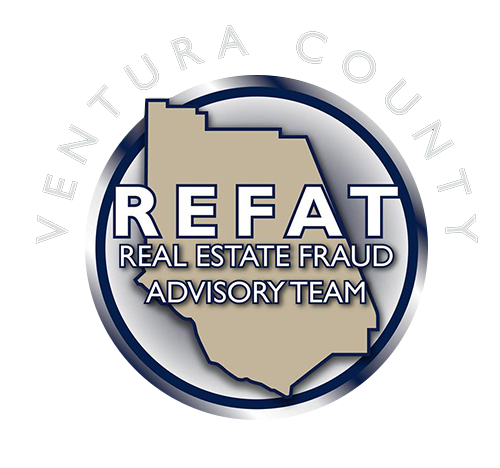WHAT WE PREVENT

Foreclosure Rescue
These companies prey upon people who are behind on mortgage payments and whose mortgage company has commenced foreclosure proceedings. The companies tell desperate mortgage holders that they can save their home if the borrowers enact a “temporary” title transfer to the rescue company. The companies promise that the borrower can stay in the home and pay rent during the temporary title transfer time—what they claim is a “leaseback.” Often these “rescue companies” sell the homes once they obtain the title from the real owner. Because the rescue companies claim it is a leaseback, they often only pay the owner a minimum amount that rarely reflects what the owner would have made if they had sold the property on the market. In the meantime, the owners remain on the hook for the original mortgage payments on their home.
Mortgage Elimination
These programs offer borrowers a way out of their mortgages in a relatively quick period of time (for example, eradication of a full mortgage in less than a year). They convince borrowers that there are loopholes that will allow the borrowers to escape the mortgage, and these companies charge a premium price for this “service.”
Home Improvement Fraud
This involves real estate agents or other individuals who obtain home improvement loans in the name of completely fictitious people. These real estate agents can also use the personal information of unsuspecting individuals to obtain these loans.
Equity Skimming
Equity skimming happens when a buyer who wants to take out a large mortgage convinces the seller to re-list the house for an extraordinarily high amount (for instance, twice the original amount) so the buyer can obtain a larger mortgage from his/her bank. Often times in these situations, the buyer will take out the larger mortgage, pay the seller the original asking price for the house, and then disappear with the rest of the mortgage money. The house usually ends up in foreclosure as a result of this scheme.
Illegal Flipping
Flipping involves buying a property and then quickly selling it at a price that is well above its appraised value. There is a fine line between flipping for a profit, which is legal, and illegal flipping. Check the rules of your local jurisdiction for more specific information.
Equity Fraud
This is old-fashioned theft. The criminal in this situation actually obtains the personal information of the victim and uses this information on mortgage or loan origination documents. In addition, the criminal physically forges the victim’s name on the deed and steals the equity from the property involved.
Fraudulent Loan Origination
This happens when real estate professionals help unqualified buyers obtain the money necessary to purchase a home with an FHA-insured mortgage. Real estate professionals in this situation promise potential homebuyers that they will qualify for mortgages that are much larger than the buyers’ ability to repay, and many times falsify official documents to assist homebuyers in obtaining these properties.
Land Fraud
This happens when companies obtain information about potential homebuyers and sellers from mailing and call lists. The companies then engage in a direct mail and telemarketing campaign, promising huge profits and gifts if the sellers agree to buy land from the company. These companies sometimes sell unimproved, recently purchased lots of land that they purchased for $1,000 or $2,000 to unsuspecting buyers for up to $50,000.
Rental Fraud
Rental fraud occurs when a person files false “satisfaction of loan” documents with the local court to file this paperwork, the renter has to forge the owner’s signature, the bank officers’ signatures, and bank seals. This document shows no encumbrances on the home, and the criminal is free to take out new loans on the property (which s/he does). These criminals usually vanish shortly thereafter.
Straw-Man Scheme
A straw man scheme is when a sophisticated criminal uses the credit history of another less sophisticated “straw man” to obtain a mortgage on a property. The more sophisticated criminal convinces the straw man to sign over the deed to the property, and the straw man usually gets a very small percentage of the proceeds from the sale. The straw man is the the partner in this type of scheme who usually gets arrested.
Counseling Agencies
Some companies engage in targeted marketing campaigns that convince homeowners that they can perform certain mortgage-saving services for a substantial fee. These are usually relatively simple tasks, such as negotiating a new payment plan with a mortgage company or discussing interest rates and possible qualification for rate reductions. These companies may also charge for information that can be found free on government agency websites!
Predatory Lending
These schemes often occur in the form of a door-to-door sales person or telemarketers promising loans for “no money down” and “no credit check”. Predatory lending often preys upon the elderly, the unsophisticated, and the desperate. Signing the paperwork involved with these loans subjects the borrower to exorbitant fees and interest.
Aggressive Sales
Those involved with this practice generally market their services to the elderly and those in danger of foreclosure. This practice involves aggressively calling unsophisticated homeowners. Often these homeowners are led to believe that the service that the criminals are selling is the only option available to them, and the homeowner signs paperwork detrimental to their true interests.

Be vigilant of red flags that may signal that they are in the midst of a legal matter that involves real estate fraud. In most cases, attorneys are tipped off by fact patterns that clients or potential clients provide that don’t add up or are completely unsupported by the documentation they present. In some cases, clients may be the victims of the real estate scam, but sometimes they may be consciously participating in the tangled web of a real estate fraud that they themselves have initiated.
While anyone may fall prey to one of these scams, the groups most targeted by real estate scammers are usually the elderly, homeowners already in foreclosure, and individuals with low incomes.
Need help finding the right resource for your particular situation? Call the REFAT Referral Helpline at: (805) 751-5899 and a REFAT Team Member will help you.



